A Snapshot of U.S. Cancer Disparities in 2024
Cancer health disparities caused by structural inequities are an enormous public health challenge in the United States.
Home > AACR Cancer Disparities Progress Report > Contents
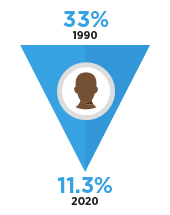
Cancer health disparities caused by structural inequities are an enormous public health challenge in the United States.
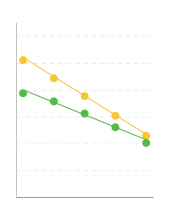
In recent decades, disparities in the burden of certain cancer types have declined among racial and ethnic minority populations. However, despite this progress, substantial differences in cancer burden remain, and constituents across the cancer care continuum are working together to understand and reduce cancer disparities.
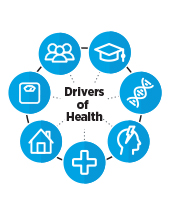
Social drivers of health—which include socioeconomic status, social and built environments, and health care access—disparately and adversely affect racial and ethnic minority groups and medically underserved populations. Improving outcomes requires strategies at the population, institution, and community levels.
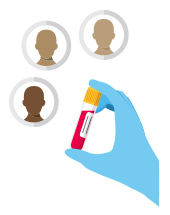
There are ancestry-related differences in cancer-driving cellular and molecular alterations. These biological differences among cancers in patients of different ancestries could provide novel targets for therapies and improve precision medicine.

Decades of systemic inequities and social injustices have led to adverse differences in drivers of health causing a disproportionately higher burden of cancer risk factors among US racial and ethnic minority groups and medically underserved populations.
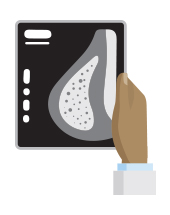
Due to a multitude of systemic factors, racial and ethnic minority groups and medically underserved populations experience disparities in adherence to routine cancer screening and follow-up care. Evidence-based interventions are proving successful in reducing these screening disparities and improving outcomes.

Recent studies have shown that racial and ethnic disparities in outcomes for several types of cancer can be eliminated if every patient has equitable access to guideline-adherent treatments. Patient navigation and community engagement can eliminate the barriers to equitable treatment and reduce cancer disparities.

Medically underserved populations have more adverse side effects, poorer quality of life, and higher financial toxicity after a cancer diagnosis. Patient navigators, patient advocates, and culturally sensitive intervention/navigation programs are needed to improve the survivorship experience for these populations.

A diverse cancer care workforce enhances cultural competence in care delivery and builds public trust and participation in cancer research. To address cancer health disparities, it is imperative to invest in early-career researchers to increase diversity in cancer research and care.

Federal funding through agencies like NIH, FDA, CDC, and CMS; policies that expand early detection and cancer prevention; a new law to support increased diversity in clinical trials; and universal access to high-speed Internet to support telemedicine are all critical to eliminating cancer health disparities.
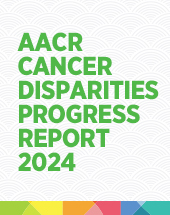
Continued transformative research and increased collaborations across the medical research community are key strategies for addressing cancer disparities.

To reduce cancer health disparities, AACR calls upon policy makers to improve collection of disaggregated data for minority groups; increase access and participation in clinical trials; enhance cancer prevention and screening efforts; ensure equitable patient care; and build a more diverse cancer research and care workforce.

As an organization whose core values include diversity, equity, and inclusion, AACR is deeply committed to achieving the bold vision of cancer health equity for all. Through a wide range of programs and initiatives, AACR fosters cancer health equity and advances its mission to prevent and cure all cancers—for all patients.

Clearly, we are in an era of extraordinary scientific progress against cancer. But along with these advances in cancer science and medicine, we must be equally committed to ensuring that no populations or communities are left behind

Thanks to research, we are making unprecedented progress against the many diseases we call cancer. However, these advances have not benefited everyone equally. It is imperative that everyone plays a role in eliminating the barriers to health equity, which is one of the most basic human rights.

Robert A. Winn, MD, FAACR, serves as the chair of the Steering Committee for the AACR Cancer Disparities Progress Report 2024.
Your donation to the American Association for Cancer Research helps our more than 58,000 members worldwide drive progress against cancer.
Donate Today